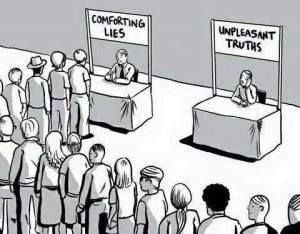When it comes to dying, bereavement, and remembrance – talking about it matters. How we talk about it may matter even more.
The Death Talk Project seeks to stimulate useful, honest conversation about how we die, how we mourn, and how we care for and remember our dead.
“How we care for the dying people in our midst, and how we die when it is our turn: … they are the place where our ability to be a people is forged, or fails. They are where our village is made or broken.” Stephen Jenkinson
A different story about death
What if we saw death not as something to battle, vanquish, or even fear? Not as the opposite of life, but as the underwriter of life? What language might we use to conjure a different story, one that doesn’t demonize death? The Death Talk Project aims to explore how we talk about and relate to death and dying.
Grief, a skill we need to learn
Faced with the heartbreak that is part of life, how do we learn what Stephen Jenkinson calls the skill of broken-heartedness? What changes when we understand grief as a collective skill rather than an individual emotion? What does connected, embodied mourning in the context of community look like? We need more examples of people grieving and making meaning together. The Death Talk Project works to reconnect families and communities to practices that support caring for, mourning, and remembering our dead.
No easy answers
Having a plan is a good idea in a medically aggressive society – but is it the end game? What tools do we have that go beyond coping, hoping, and doping? How can we respect the mystery of death even as our culture no longer seems to? The Death Talk Project is willing to be troubled by these times in which we live, and prioritizes big questions over easy answers.
Rebuilding our capacity as a people
How can we rebuild our capacity as a people to make meaning and build connection through the cycle of life and death? Can we break out of the individualism of self-help models and focus more on what John O’Donohue calls the space between us? The Death Talk Project aspires to build community capacity to show up more skillfully for what life and death asks of us.
Generosity & reciprocity
The Death Talk Project relies on support from program participants and generous donors to fund the time and technology needed to maintain this on-line space and organize in-person opportunities for inspiration, information, and connection. Every effort will be made to provide access at all income levels, with the support of those able to contribute more.
The Death Talk Project
From 2016–2019 the Death Talk Project organized workshops, rituals, Death Cafés, a monthly movie night, and other events. This legacy site documents our approach to useful, honest conversation about how we die, how we mourn, and how we care for and remember our dead.
Death Talk Manifesto
When it comes to dying, bereavement, and remembrance – talking about it matters. How we talk about it may matter even more.
The Death Talk Project seeks to stimulate useful, honest conversation about how we die, how we mourn, and how we care for and remember our dead.
A different story about death
What if we saw death not as something to battle, vanquish, or even fear? Not as the opposite of life, but as the underwriter of life? What language might we use to conjure a different story, one that doesn’t demonize death? The Death Talk Project aims to explore how we talk about and relate to death and dying.
Grief, a skill we need to learn
Faced with the heartbreak that is part of life, how do we learn what Stephen Jenkinson calls the skill of broken-heartedness? What changes when we understand grief as a collective skill rather than an individual emotion? What does connected, embodied mourning in the context of community look like? We need more examples of people grieving and making meaning together. The Death Talk Project works to reconnect families and communities to practices that support caring for, mourning, and remembering our dead.
No easy answers
Having a plan is a good idea in a medically aggressive society – but is it the end game? What tools do we have that go beyond coping, hoping, and doping? How can we respect the mystery of death even as our culture no longer seems to? The Death Talk Project is willing to be troubled by these times in which we live, and prioritizes big questions over easy answers.
Rebuilding our capacity as a people
How can we rebuild our capacity as a people to make meaning and build connection through the cycle of life and death? Can we break out of the individualism of self-help models and focus more on what John O’Donohue calls the space between us? The Death Talk Project aspires to build community capacity to show up more skillfully for what life and death asks of us.
Generosity & reciprocity
The Death Talk Project relies on support from program participants and generous donors to fund the time and technology needed to maintain this on-line space and organize in-person opportunities for inspiration, information, and connection. Every effort will be made to provide access at all income levels, with the support of those able to contribute more.
The Death Talk Project
From 2016–2019 the Death Talk Project organized workshops, rituals, Death Cafés, a monthly movie night, and other events. This legacy site documents our approach to useful, honest conversation about how we die, how we mourn, and how we care for and remember our dead.
Non-Commercial Deathcare Info
Check out Oregon Funeral Resources & Education and The Funeral Partnership for other states.
Subscribe to our Newsletter
Recent Posts
Pages
Categories